Panoramic Photo Above:
Forbes Field, Pittsburgh

Baseball History Comes Alive Now Ranked As a Top Five Website by Feedspot Among All Baseball History Websites and Blogs!
(Check out Feedspot's list of the Top 35 Baseball History websites and blogs)
Guest Submissions from Our Readers Always Welcome! Click for details
Subscribe to Baseball History Comes Alive! for automatic updates (sign-up block found in right side-bar)
As a Free Bonus for subscribing, you’ll get instant access to my two Special Reports: Memorable World Series Moments and Gary’s Handy Dandy World Series Reference Guide!
Shufflin’ Phil Douglas and the1918 Pennant-Winning Cubs Photo Gallery
Click on any image below to see photos in full size and to start Photo Gallery:
Shufflin’ Phil Douglas and the 1918 Pennant-Winning Cubs
In my recent post showing the 1913 White Sox in front of the Hotel Oakland (which garnered almost a thousand “likes” on Facebook), we identified a young Phil Douglas in the featured photo. In the photo above, one of my favorites from the Dead Ball Era, we see an older Phil Douglas now as a mainstay of the 1918 pennant-winning Cubs. It’s been beautifully colorized by our resident baseball artist Don Stokes. As always, Don does extensive research before doing a colorization and is meticulous in his detail. This is one of his best.
L-R: Lefty Tyler, Jim “Hippo” Vaughn, Shufflin’ Phil Douglas, and Claude Hendrix.
The Career of Shufflin’ Phil Douglas
I always used to designate 1918 as the most dysfunctional year in baseball history, but I’m afraid this year, 2020, will now hold that dubious distinction. Before I say a few words about that forgettable season, I wanted to feature Shufflin’ Phil Douglas.
To put it mildly, Phil Douglas had a rather “checkered” nine-year career in the majors (1912-1922), cut short by a life-time ban from Judge Landis after a dispute with John McGraw. He pitched for the White Sox (1912), Reds (1914-15), Robins (1915), Cubs (1915, 1917-19), and Giants (1919-22). Phil posted a 94-93 career mark, with a 2.88 ERA, 683 strikeouts, 96 complete games, and 20 shutouts.
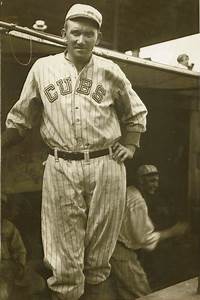
One of our readers, Thomas Marshall, did some research on Phil Douglas’ career and provided some interesting details:
He was called “Shufflin’ Phil” due to his slow and deliberate gait or ‘shuffle’ as he walked from the bullpen to the mound. Between 1912 and 1919, he went through a rapid succession of teams, mostly due to his cantankerous attitude and the excessive alcoholism that often hampered his play. One of the most glaring was a costly miscue on a sacrifice bunt in Game Four of the 1918 World Series that cost the Cubs a 3-2 loss to Boston Red Sox.
After being traded to the New York Giants in 1919, Manager John McGraw did his best to control Douglas’ drinking but was not successful. During his time with the Giants, he did manage to have some decent years, however, winning 14 games once, and 15 in another campaign. But the two had a lot of friction, and suffice to say their relationship was filled to the brim with animosity. This led to a very heated argument during the 1922 season, which resulted in Douglas being suspended by McGraw and fined $100 (a lot of money in those days).
Soon after, Douglas sent a letter to his friend and former teammate with the Cubs, Les Mann. The letter said, in part: “I want to leave this team, but want inducement. I don’t want this guy [McGraw] to win the pennant, and if I stay, I might help him win it. If you send a man over with ‘the goods,’ I will leave for home on the next train.”
Somehow, the letter found the desk of Commissioner Judge Landis, and without hesitation, he banned Douglas from the major leagues for life. His departure didn’t matter, however, as the Giants won the pennant in 1922, and went on to defeat the Yankees in the World Series. Douglas died a disgruntled man in 1952 at age 62.
I’m not really sure what he meant by “the goods.” It sounds like he was looking for a payoff of some sort. He also said, “I want to leave this team, but want inducement.” So maybe he wanted a payoff to fake an illness or just go AWOL so he could leave the team and not help them win. Whatever he meant, apparently Judge Landis took it seriously and banned him for life.
The Dysfunctional 1918 Baseball Season
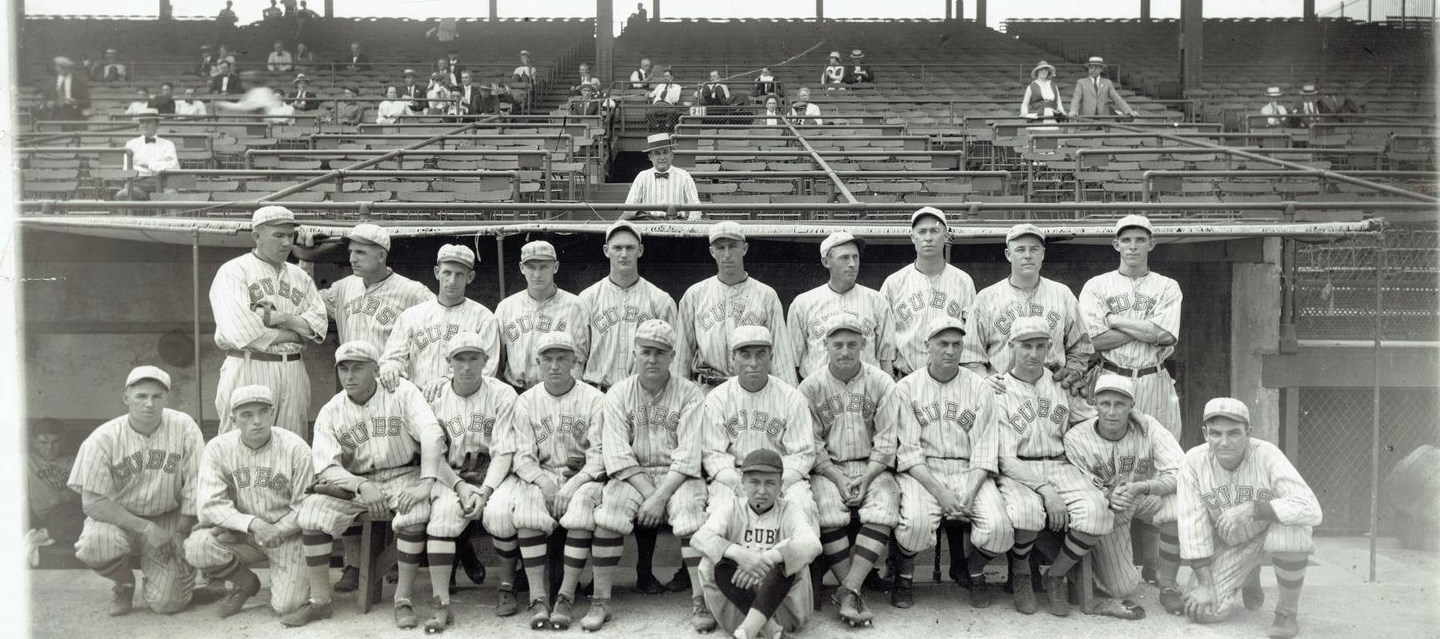
In the photo above, we see the 1918 pennant-winning Cubs with Shuffin’ Phil Douglas standing in the top row, far left. (Complete player identification available upon request)
Here’s some excerpts from my Amazon review of the book, The Original Curse, by Sean Deveney:
Gamblers and players mingled freely by 1918 and gamblers openly conducted their business in major league parks. Should a player desire to make some money illicitly, there were plenty of opportunities to do so. The situation was ripe for “fixing.” Unfortunately, it came to a head the following year in the 1919 World Series.
With World War I lurking in the background, it’s not surprising the1918 was [until this year] the most dysfunctional year in baseball history. With war-depleted rosters, the season was anything but a competition between the best teams, and fan interest waned. Due to the war effort, the government ordered the 1918 season halted on Labor Day. In the shortened season, the Cubs won the National League pennant (84-45); while the Red Sox (75-51) won the American League pennant and the World Series, four games to two.
If things weren’t bad enough with the specter of war hanging in the air, baseball was also in an era in which gambling infested the game much as steroids has done in our generation. Severe war-related financial shortcomings made the situation prime for gamblers offering the allure of “payoffs” to the underpaid players for throwing games. There were rumors abounding that some players agreed to throw World Series games. Added to the mix was that the Cubs had a number of players with shady pasts: Lee Magee, Claude Hendrix, Charlie Hollocher, Max Flack, and the afore-mentioned, Phil Douglas.
Did World Series “Fixing” Start In 1918?
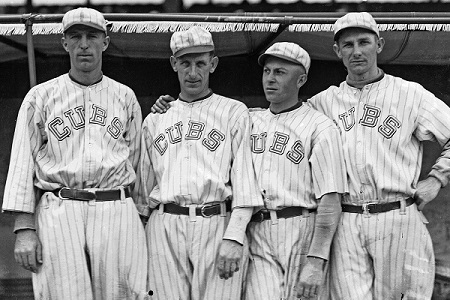
When the players found out they would be receiving considerably less money than promised (the winners would receive $1,200 per man and the losers $800), they threatened to strike before Game Five. Only an appeal to patriotism by Boston’s Mayor Fitzgerald ended the threat.
“The Original Curse” dives deep into the 1918 baseball season, the year before the Black Sox World Series-throwing scandal, and poses the provocative question: Is it possible that the White Sox were not the first and only team to throw a World Series – and could their crosstown rivals, the Cubs, have done so the previous year?
All in all, 1918 was a year most baseball fans would just as soon forget.
Shop MLB.com. The Official Online Shop of Major League Baseball.
Gary Livacari
Photo Credits: Featured photo colorized by Don Stokes; All others from Google search
Check out my latest book, recently nominated for the SABR 2020 Lawrence Ritter award: Reflections On the 1919 Black Sox: Time to Take Another Look now available on Amazon in e-book and paperback. All profits go to the Illinois Veterans Foundation
Add your name to the petition to help get Gil Hodges elected to the Hall of Fame
Vote In Our New Poll: How Do You Feel About the 60-Game Proposal for the 2020 Season?
We are a participant in the Amazon Services LLC Associates Program, an affiliate advertising program designed to provide a means for us to earn fees by linking to Amazon.com and affiliated sites. Click here to view Amazon’s privacy policy
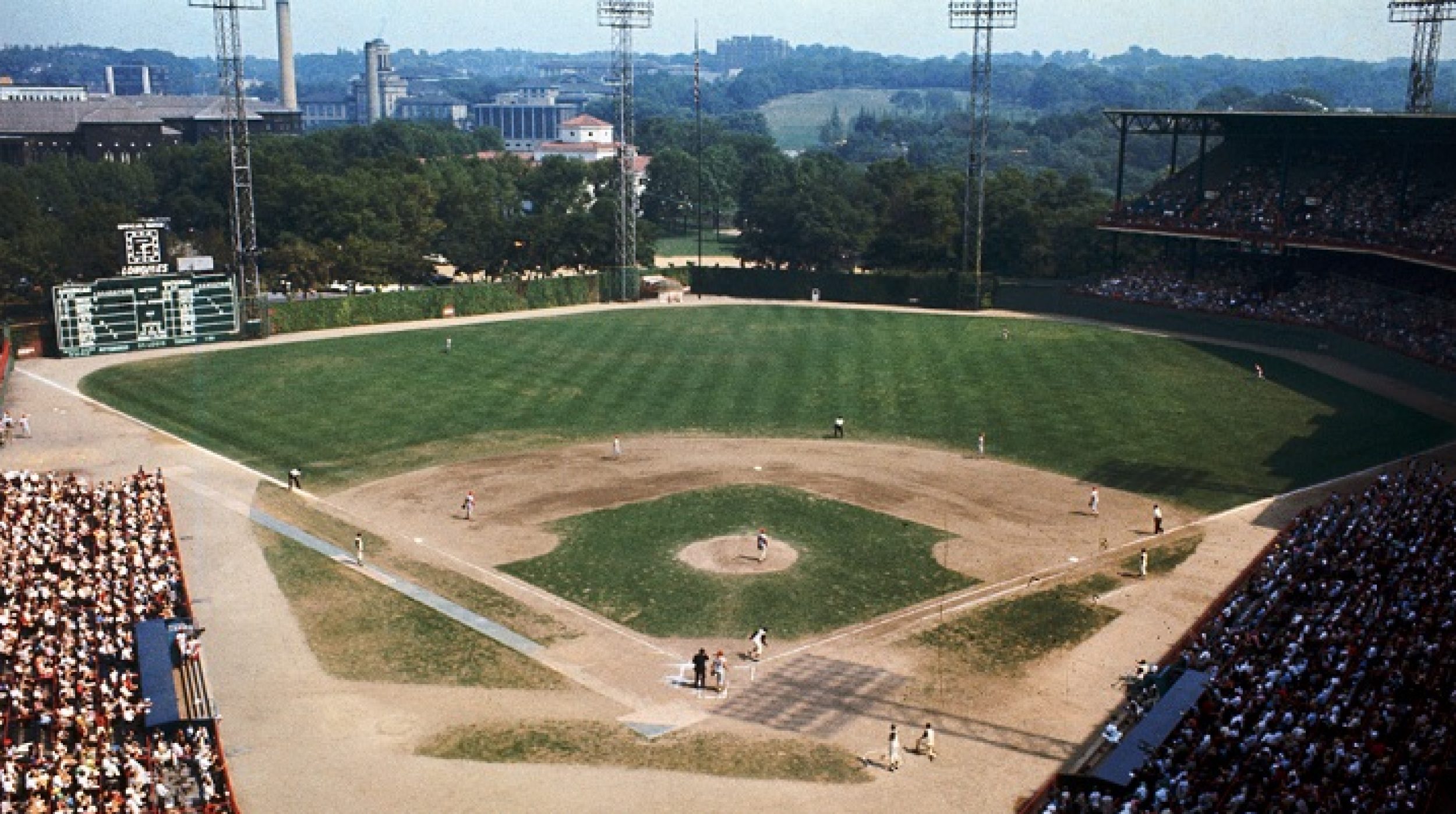
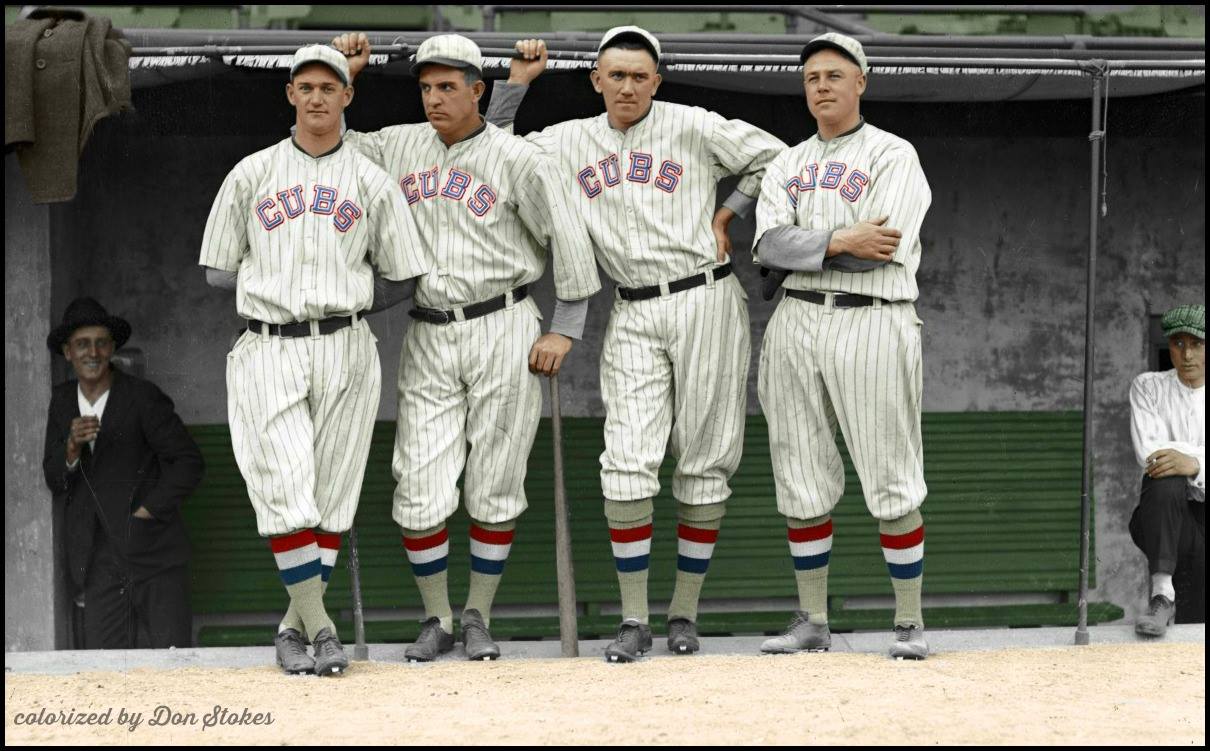
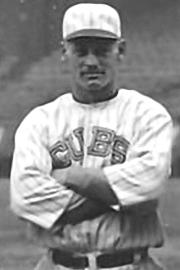
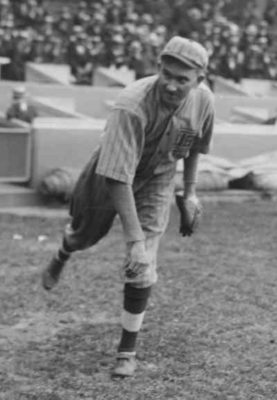
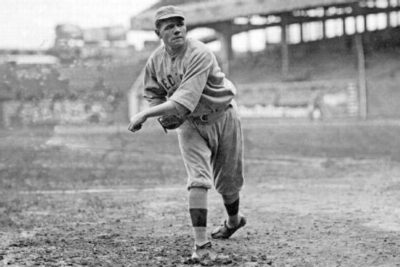

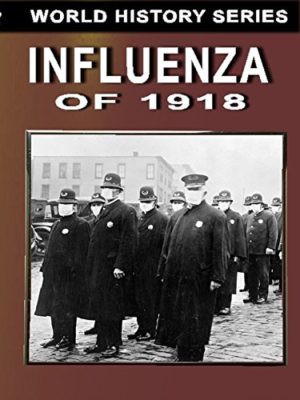
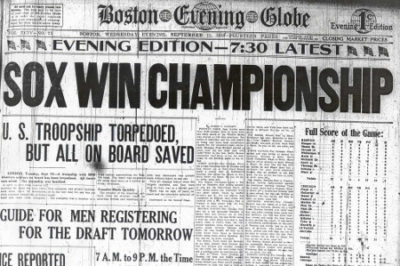
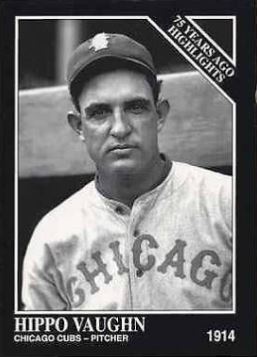
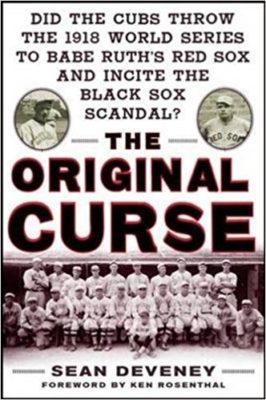
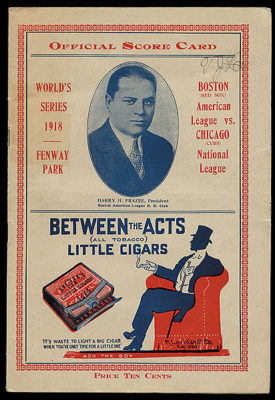
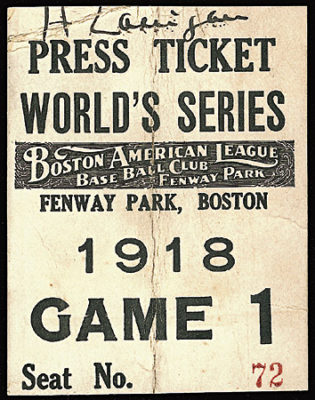
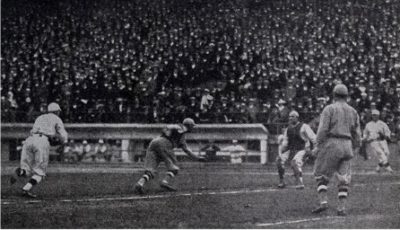
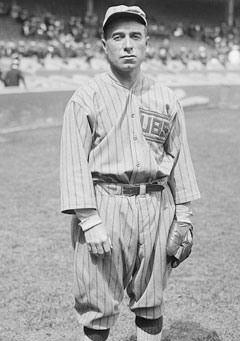
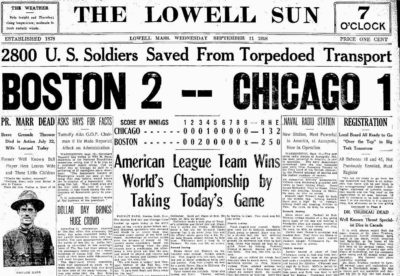
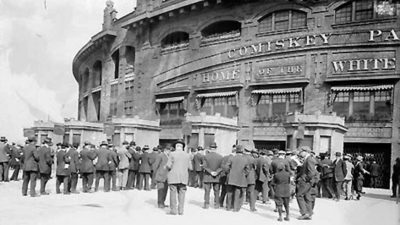
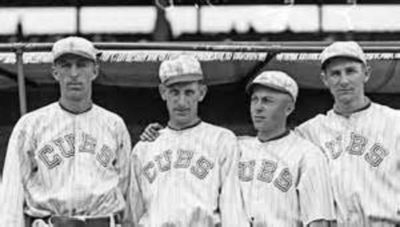
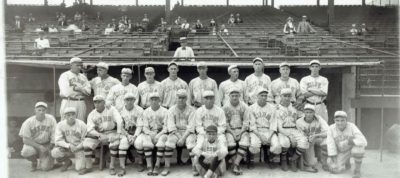
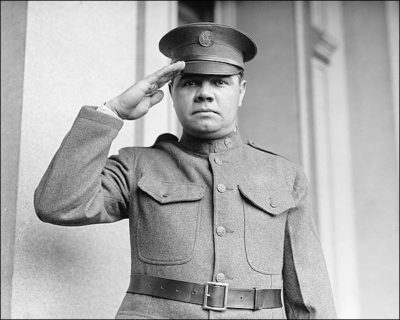
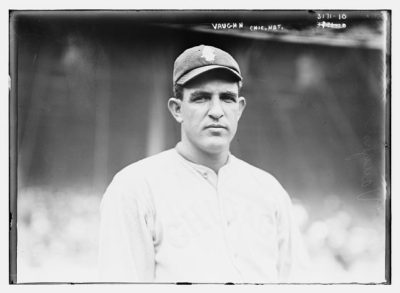
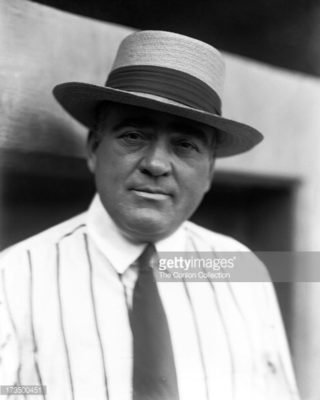
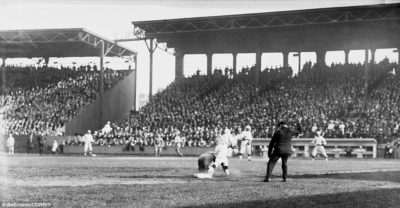
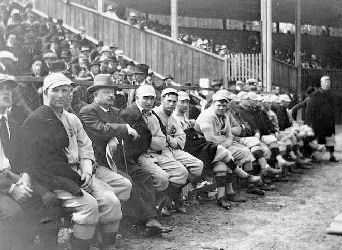
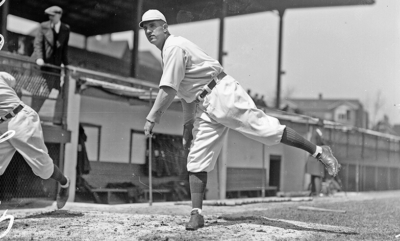
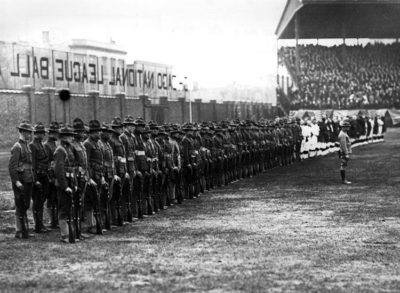
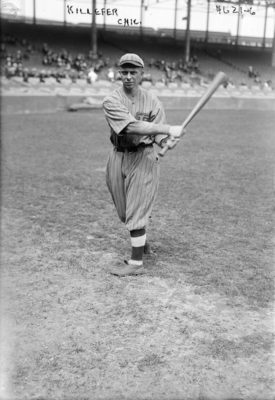
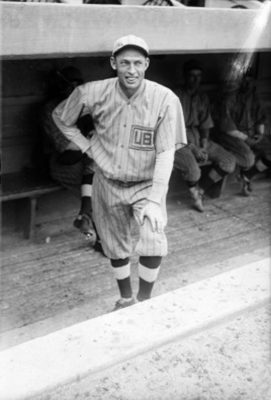
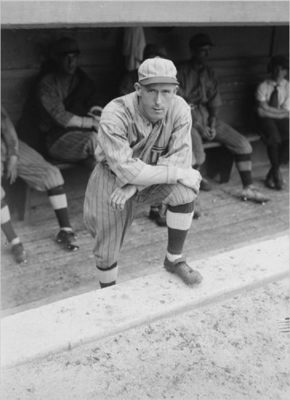
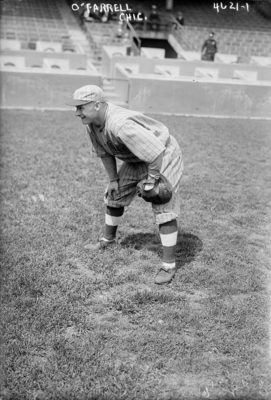
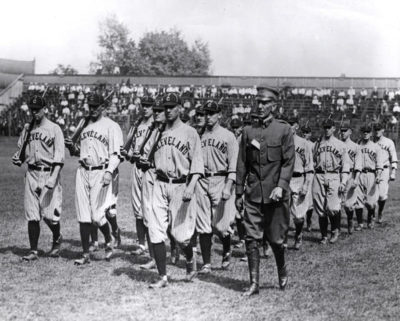
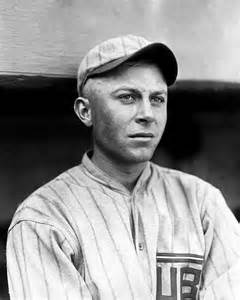

Isn’t this an unusual Cubs uniform? They already had their signature C-ubs logo with their earlier great teams. Great article, love your work. Chicago baseball history fascinating, if often sad.
Thanks for the kind words…greatly appreciated!
I have came across personal items of Mr. Douglas. Ball team original photo, eye glasses prescribed and also what looks to be a diamond baseball bat pendant. Can anyone help with info. Thanks! I live in Dunlap, tn where he is from.
Hi Joyce- Sorry, I don’t have any information that would be of use to you. Maybe someone will see this and have some info that can help you.